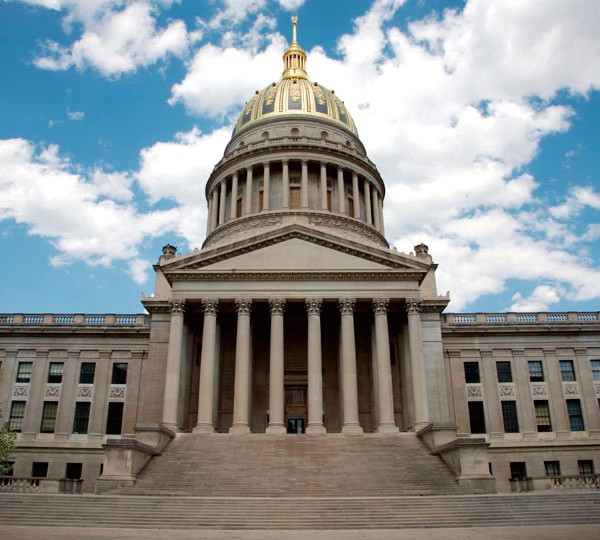CHARLESTON — Recent developments, which have included the impeachment of four members of the state Supreme Court and the subsequent retirement of one of those members, has generated a number of questions in the Secretary of State’s office.
Deputy Secretary of State and the office’s chief legal counsel Steve Connolly addressed some of those questions during an appearance Friday on MetroNews “Talkline.”
The questions have centered on the decision of Rep. Evan Jenkins (WV-3) to both seek the fill-in appointment of one of the openings on the Supreme Court and also run for a seat in the November General Election.
Connolly said existing case law, from a 2000 case, would appear to allow Jenkins to fill-in for the seat that opened after the retirement of Justice Menis Ketchum while running for the seat occupied by Justice Robin Davis, who retired last week.
Jenkins has announced he’ll run for the Davis seat, which has six years left on a 12-year term but as of Friday morning he had yet to file.
Canon 4 of the state’s Judicial Code of Conduct seems to require any attorney holding a partisan elected seat from running in a non-partisan election.
Connolly said the state Judicial Investigation Commission would be able to give Jenkins guidance on the issue.
“If somebody would contact the JIC they would probably tell them that they could not both occupy a partisan office and also seek a non-partisan judicial office,” Connolly said.
So that would mean that Jenkins might have to resign his congressional seat before filing to run for the Supreme Court. The filing deadline is midnight Aug. 21.
House of Delegates Speaker Tim Armstead, R-Kanawha, may be struggling with a similar decision. Armstead is one of nine applicants for the fill-in Ketchum seat, but he’s yet to file to run for one of the two court seats open in November. Armstead’s time in the House is scheduled to end in a few months with his decision not to seek reelection.
A third issue that some have raised calls into question a possible Armstead appointment because during his time in the legislature he has voted on judicial pay raises although there have been no pay raise bills up for votes during the current two-year term. Connolly said Friday, referring to a 1999 Supreme Court case, that he doesn’t see that as an issue in Armstead’s case.
“I think you have to give words their plain meanings and the word ‘term’ would mean ‘term of office’ and not ‘tenure in office’ because anything otherwise would lead to an absurd result,” Connolly said.
The last judicial pay raise vote in the legislature came in 2011 and Armstead voted against the bill.
Jeff Jenkins is head of the news division of MetroNews.com. Email him at jjenkins@wvradio.com.




